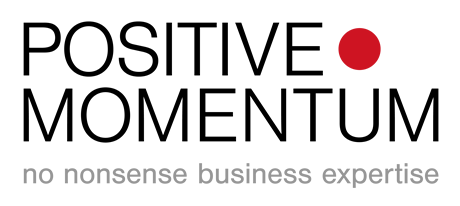2020 has been the year of digital acceleration, and it’s piled even more urgency on tackling the digital skills gap at the very top of business.
Boards need to be representative of the companies & customers they serve, in terms of gender and ethnicity – well highlighted in recent times – and it’s also vital that they have the relevant knowledge and skills for the times too.
As digital acceleration has increased, there’s evidence that digital confidence in the boardroom has decreased. According to the Alumni Harvey Nash Board Report for 2020, only 47% of board members surveyed said they felt they had the correct skills to drive digitally enabled business transformation in comparison with 58% in 2017.
So before we go into what to do about it, here are 5 reasons why it’s important for the board to get more digital:
Generational shift
In 2020, millennials make up the largest demographic in the workplace. This is a group who have grown up with digital disruption, and it’s fair to assume that at least three quarters of them would have started their careers after the dot com bubble peaking in 2000.
My transition to digital at Sky News came in 2006, moving from producing live TV to running skynews.com, so I class myself as a digital immigrant (with residency!), if not native.
Meanwhile, the average age of board members in media businesses in 2019, according to Spencer Stuart, has gone up to 60 from 55.
Experience is everything at board level, but it shouldn’t necessarily be measured in years on the planet, rather than what you’ve done with your time while you’ve been on it.
The world is only going more digital
… so understand the world, your company’s role in it, the technology in the world, and what that world looks like for your customers. Put simply.
To go into a bit more detail, the argument for better representation by ethnicity or gender applies also to digital maturity. I’m absolutely not arguing for digital elitism, but it’s wrong for a board’s thinking and operation to be digitally dumbed down – and that applies just as much to how the business strategy innovates digitally, as to how the board runs.
Not long ago I presented to a board who required papers delivered in a ring-bound book! I think a board should live and breathe how the company operates. Why should you expect your staff to use shared collaborative docs if you don’t at board level?
More fundamentally, we’ve seen successful businesses make huge digital leaps in the last year, changes which have been crucial to their survival, and the board needs to be at the same race pace as the rest of the company.
Hold the CTO / CIO to account, not just the CEO / CFO
Governance isn’t just about operations and finance, it includes technology, and data handling, and regulations like GDPR now place substantial jeopardy on the latter – fines in order of revenue multiples.
As above, the world is becoming more digital, and so probably is your business. As technology plays a bigger role in how the business meets its challenges, it becomes increasingly important to interrogate, challenge and support the leaders in the business in that area.
Make sense of the technobabble!
The more the dialogue covers the technology sphere, the more important it is to translate the language of technology into language which the whole board understands.
The CTO & CIO are important seats in the boardroom, and it’s useful to have at least one or two others in the group who can act as ’translators’, helping to make the concepts under discussion more accessible to the diverse group.
Adapt to the digital leadership paradigm
Digitisation makes new demands on leadership: digital dissolves silos and hierarchies to enable fast progress in small autonomous multi-disciplinary teams, which means an old style of leadership by telling is replaced by a new style which is all about asking.
To be effective in this new world, boards need to understand the paradigm shift in leadership and management brought on by increased digitisation.
So what to do about it?
Chairs / CEOs: Take a look at your board mix
Ask yourselves these questions:
- Do you have the right blend of experience, expertise and personality to assimilate the state of the world and how your business meets the challenges it faces to succeed?
- As a group, can you effectively discuss, understand and make decisions spanning technology and data governance? Can you bridge the language gap between technology and the rest of the board?
- Are you living and breathing the digital world in the same way as the rest of your organisation? Do you expect the same level of digital literacy from your board as you expect from the business as a whole? If not, is that OK?
Future board members
Take every opportunity to get access to the board environment:
- Seize the chance to present to the board as a leader within the company,
- Get to know the board of your company. I’ve come across many Non-execs who welcome the opportunity to meet leaders within the firm to better understand what they’re up to and the challenges they face. Good NEDs are engaged and receptive.
- Start your non-exec journey: join a non-profit as a NED. A role like that will give you great experience of the role of Non-Exec, which is different from being to be an Exec (as the title suggests!)








